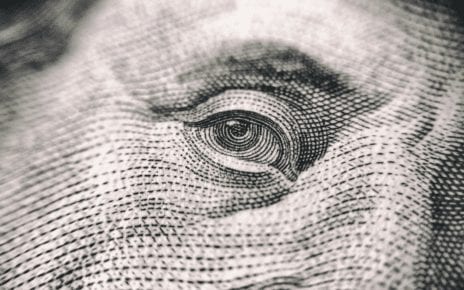This article was sourced from Bloomberg Markets. Article by Luke Kawa.
Euro soars on French election results, Chinese stock slump raises fears of yuan depreciation, and the U.S. looks to avoid a government shutdown. Here are some of the things people in markets are talking about today.
Euro Up
The euro spiked to a five-month high against the U.S. dollar after early voting in the first round of the French presidential election showed centrist Emmanuel Macron and the National Front’s Marine Le Pen were poised to reach the second round. The euro’s gains versus the yen were even larger. Investors had been fearful of a second-round matchup between Le Pen and the far-left candidate Jean-Luc Melenchon, as both have expressed support for the possibility of France exiting the European Union. This result is seen as potentially moving forward the timetable for the European Central Bank to taper its quantitative easing program, if Le Pen does not emerge victorious in May. Early polling shows Macron heavily favored over Le Pen in the second round.
China’s Leverage Crackdown
The Shanghai Composite Index is coming off its worst weekly loss of 2017after China’s chief securities regulator called for market irregularities to be punished “without mercy” in a bid to curb leveraged trading. In particular, stocks linked to the Xiongan economic zone saw a sharp retracement of much of the parabolic gains they enjoyed since the start of April. The woes of Chinese stocks have raised fears among analysts that the yuan will come under renewed pressure as investors attempt to reallocate into overseas assets.
Government Shutdown Looms
Coming up on 100 days in office, the Trump administration has seen little progress on major legislative matters. But that could be set to change this week House Speaker Paul Ryan pledged that a bill will be ready to avert a government shutdown through September, though he reportedly provided scant details on the matter in a conference call with his Republican colleagues on Sunday. The deadline for a deal is Friday. The White House is also expected to push for another vote to repeal and replace the Affordable Health Care Act this week. For tax reform, however, a firm proposal likely won’t be ready until June, said Mick Mulvaney, director of the Office of Management and Budget.
Saudi Fiscal Shift
Saudi Arabia’s King Salman reversed cuts made in September to state employees’ bonuses and allowances, citing higher than expected government revenues. While officials suggest the reversal is intended to stimulate economic growth, others contend it’s a bid to assuage discontent related to the austerity measures. The Tadawul All Share Index gained 1 percent on expectations of rising consumer spending. In addition, the kingdom implemented rules related to short-selling and settlements that bring the bourse more into alignment with international standards, moves which seemingly boost its prospects for inclusion into the MSCI Emerging Markets Index.
Data on Deck
The biggest event on the economic calendar comes to us from Germany with the release of the IFO business confidence figures for April at 5:00 p.m. Toyko time. The forward-looking portion of the survey is expected to show an improvement with the assessment of current conditions forecast to moderate slightly. Data from the Asia Pacific region is sparse, but includes Thailand’s trade figures and car sales for March, that month’s reading of inflation in Singapore, and Japanese leading and coincident indicators for February.
Tell us what you thought of this article by commenting below or connecting with us on LinkedIn or Twitter.




